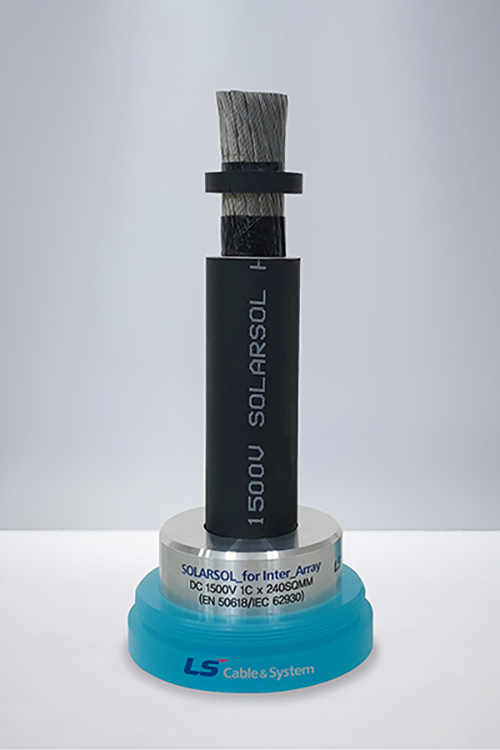NEWS
| Title | LS Cable & System acquires international certification for photovoltaic cables |
|---|---|
| Date | 2020-05-25 |

■ IEC/EN certification helps expand to major markets in Europe/Asia/Middle East
■ DC type increases energy transmission efficiency and reduces installation costs
■ Korean Industrial Standards need to be established urgently according to international standards
LS Cable & System (President & CEO Roe-hyun Myung) announced on May 25 that the company has developed a photovoltaic cable that has received international standard certification from Germany’s TUV Rheinland, a global certification authority.
TUV said that LS C&S’s DC 1500V photovoltaic cable meets the functional and safety standards of the IEC (International Electrotechnical Commission) and EN (European Norm).
LS C&S believes that this certification will help expand more deeply into major markets in Europe, Asia, and the Middle East, which use IEC and EN standards, as well as the domestic market. Also, the Company is planning to develop additional standard products for the North American and Japanese markets and strengthen its competitiveness with customized products for each global region.
LS C&S designed the photovoltaic cables to be strongly resilient against UV radiation, extreme heat and cold, and water in consideration of the fact that they are primarily laid outdoors to connect solar panels to energy accumulation systems. General cables may develop such problems as functional impairment, deformation, and overload if they are exposed outdoors for a long time.
Also, as this product was developed as a DC cable, the current global trend in solar power systems, it boasts higher energy transmission efficiency than the existing AC type, and installation costs can be reduced as well.
President & CEO Roe-hyun Myung of LS C&S said, “As Korea has adopted its Green New Deal Policy, and as governments around the world are expanding the use of new renewable energy sources such as wind and solar power, we are planning to concentrate on related R&D and marketing.”
To secure the safety and global competitiveness of photovoltaic systems, the necessity of establishing Korean standards for cables is raised. The company said that unlike Europe, Japan, and other countries, which are already requiring that only DC 1500V cables be used along with leading global standards, Korea does not have any separate provision for them.




